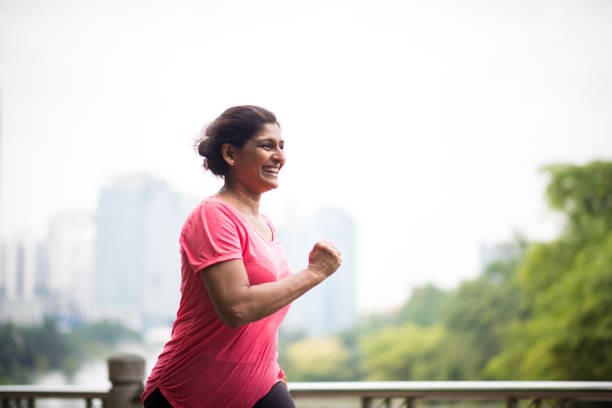The world of fitness is rapidly evolving, and more women are recognizing the importance of balanced, sustainable approaches to achieving their health goals. One such approach is integrating Physiotherapy into fitness regimens, offering a holistic pathway toward strength, flexibility, and overall well-being. Unlike traditional workout routines, physiotherapy in fitness caters specifically to the body’s needs, addressing issues that may arise due to injury, lifestyle, or biological factors unique to women.

What is Physiotherapy?
Physiotherapy is a science-based, healthcare discipline aimed at enhancing mobility, physical function, and quality of life through targeted exercises, manual therapy, education, and advice. Physiotherapists are trained to understand the biomechanics of the human body, making them ideal partners in developing personalized fitness programs that prioritize injury prevention, recovery, and long-term wellness.
Why Women Need Specialized Fitness Approaches
Women’s bodies undergo numerous physiological changes throughout their lives, from adolescence to pregnancy, menopause, and beyond. Hormonal fluctuations, Bone density changes, and shifts in muscle mass make it crucial for women to adopt fitness routines that are mindful of these transitions. Physiotherapy can play a key role in addressing:
- Pelvic Health: Women often experience pelvic floor issues, especially after childbirth or during menopause. Physiotherapy can help strengthen the pelvic floor muscles, preventing or alleviating problems like incontinence and prolapse.
- Posture Correction: Modern sedentary lifestyles can lead to poor posture, causing back, neck, and shoulder pain. Women, particularly those balancing work and caregiving responsibilities, can benefit from physiotherapy to realign posture and reduce tension.
- Bone Health: Osteoporosis is more prevalent in women, especially post-menopause. Physiotherapy can help in incorporating weight-bearing exercises that improve bone density and reduce the risk of fractures.
- Recovery from Injury: Physiotherapists design recovery programs tailored to a woman’s specific needs after injuries like ligament tears, sprains, or fractures. This is particularly important for women involved in sports or high-intensity fitness routines.
Benefits of Physiotherapy in Fitness for Women
- Personalized Fitness Plans: Unlike one-size-fits-all fitness routines, physiotherapy takes into account a woman’s individual health history, body mechanics, and fitness goals. This ensures that exercises are safe, effective, and sustainable.
- Prevention of Injuries: Physiotherapists identify and correct muscle imbalances, improper form, or weaknesses that could lead to injuries. Whether it’s ensuring proper squat form or developing a stretching routine, physiotherapy enhances safety during workouts.
- Postpartum Recovery: After childbirth, many women face challenges such as weakened core muscles, diastasis recti (abdominal separation), and pelvic floor issues. Physiotherapy offers targeted exercises to help regain strength, heal, and ease the transition back into fitness.
- Menopause Support: Menopause can bring about muscle loss, joint stiffness, and decreased flexibility. Through physiotherapy, women can develop fitness routines that maintain strength, mobility, and cardiovascular health, reducing symptoms of menopause.
- Pain Management: Women are prone to various conditions that cause chronic pain, such as arthritis or fibromyalgia. Physiotherapy can help manage pain through therapeutic exercises, stretching, and manual therapy, allowing women to continue with their fitness activities without discomfort.

Incorporating Physiotherapy into Fitness Routines
- Assessments: A physiotherapy-led fitness plan begins with a comprehensive assessment. This involves evaluating posture, muscle strength, flexibility, and identifying any areas of concern or existing injuries. From there, a customized workout plan is crafted.
- Functional Training: Physiotherapists often emphasize functional movements that mirror daily activities, improving not only fitness but also making everyday tasks easier and pain-free. Exercises like squats, lunges, and planks are often adapted to meet individual needs.
- Flexibility and Mobility Work: Incorporating stretches and mobility exercises ensures that the muscles and joints remain supple, reducing the risk of injury. For women, maintaining flexibility becomes increasingly important with age, as it enhances range of motion and keeps joints healthy.
- Strength Training: A critical aspect of women’s fitness, strength training helps maintain muscle mass, improve bone density, and burn fat. Physiotherapists ensure that strength exercises are performed with proper form to prevent injury and maximize results.
Conclusion: A Holistic Approach to Fitness
Physiotherapy is not just for rehabilitation; it’s a powerful tool in preventive health and fitness. For women, it provides a balanced approach that accommodates the body’s natural changes, focuses on long-term health, and supports fitness goals in a safe and sustainable way. By integrating physiotherapy into their fitness routines, women can enjoy improved strength, flexibility, and overall well-being while minimizing the risk of injury and pain.
So, whether you’re recovering from an injury, dealing with postnatal changes, or simply looking to enhance your fitness routine, physiotherapy could be the key to unlocking your full potential. It’s not just about working out harder—it’s about working out smarter.

Dr. Disha Shah (PT),
Women’s Health Expert Physiotherapist,
Rehab Station
